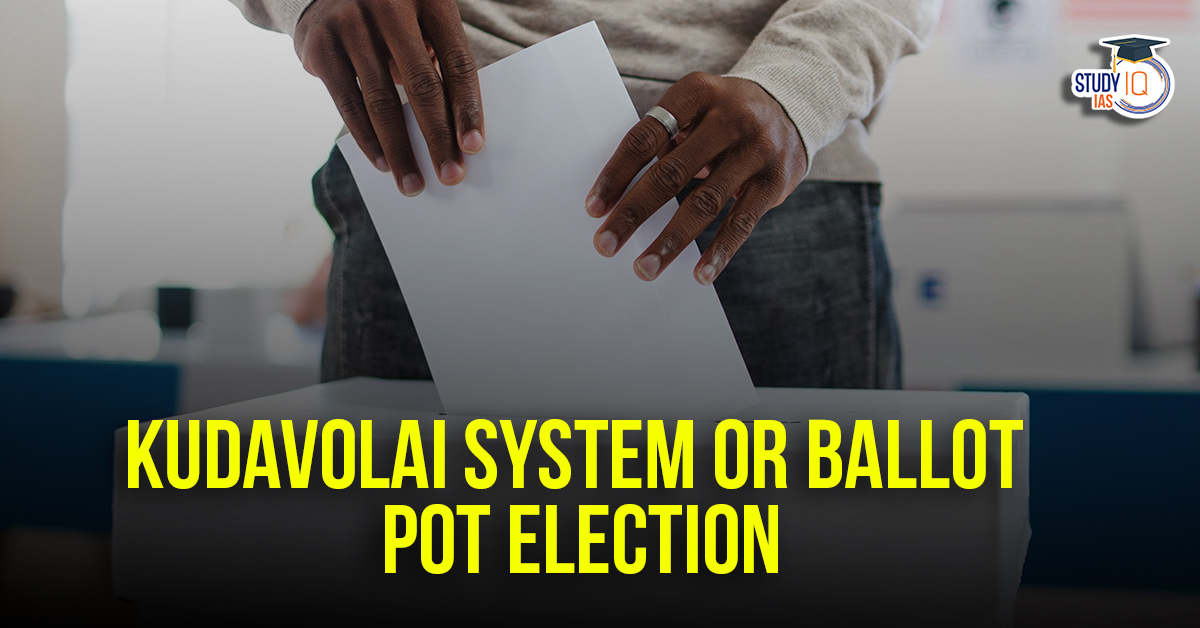Context: PM Modi praised the Chola Empire’s ancient democratic system using “ballot pots,” calling it older than the Magna Carta.
Kudavolai System
The Kudavolai System, alternatively known as the Ballot Pot Election, was an advanced and ancient system of local self-government and electoral system which thrived in ancient India, especially under the rule of the Chola Dynasty (approximately 9th to 13th centuries CE) in the modern-day state of Tamil Nadu.
This system is notoriously explicated in the Uttaramerur inscriptions on a village in the Kanchipuram district of Tamil Nadu. These inscriptions, which date back to the period of Parantaka I (907-955 CE), give one of the earliest available documentary evidences of a formalised electoral process anywhere in the world.
- Ballot-pot method: Names of candidates were written on palm leaves and placed in a pot (Kudavolai).
- Fair selection: A neutral child drew the winning leaf publicly to ensure transparency and impartiality.
- Symbolic integrity: The system combined divine randomness with civic responsibility, discouraging dynastic politics.
Strict Eligibility Criteria
Candidates had to:
- Be landowners paying taxes.
- Be 35–70 years old
- Be literate in the Vedas or administrative texts.
- Be free from criminal charges, debt, alcoholism, and nepotism.
Strong Disqualification Norms
Disqualified if found:
- Involved in financial fraud, ethical violations, or corruption.
- Punishments included fines or removal from office, as seen in epigraphic evidence (e.g., Inscription No. 24, Epigraphia Indica).


 Birsa Munda Birth Anniversary 2025: Life...
Birsa Munda Birth Anniversary 2025: Life...
 Military Innovations of Afghans and Turk...
Military Innovations of Afghans and Turk...
 Self-Respect Movement, History, Objectiv...
Self-Respect Movement, History, Objectiv...

























